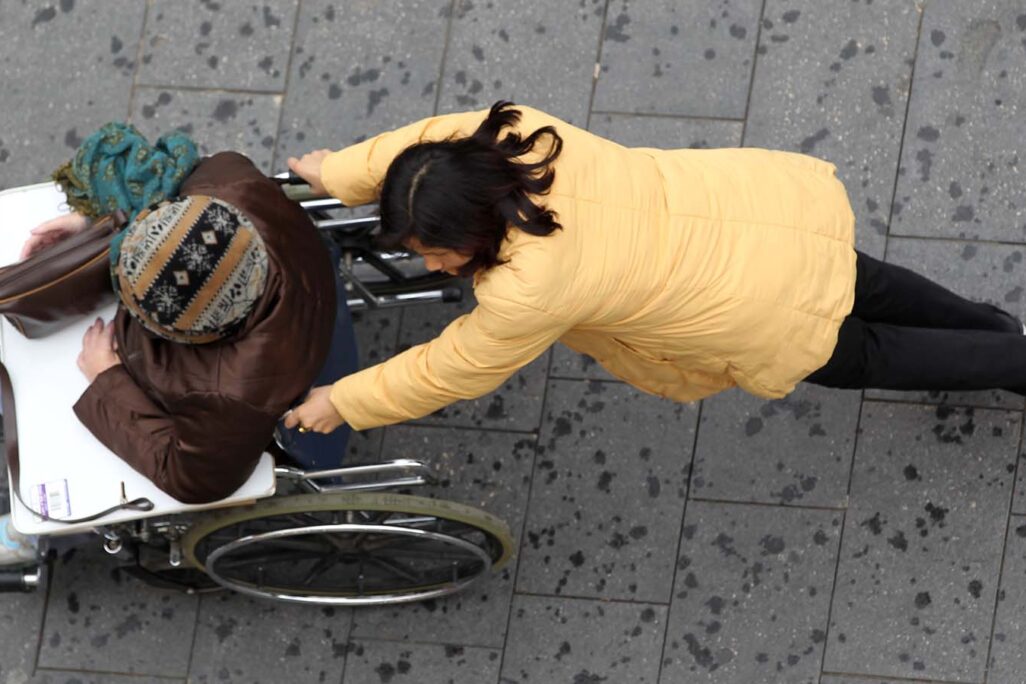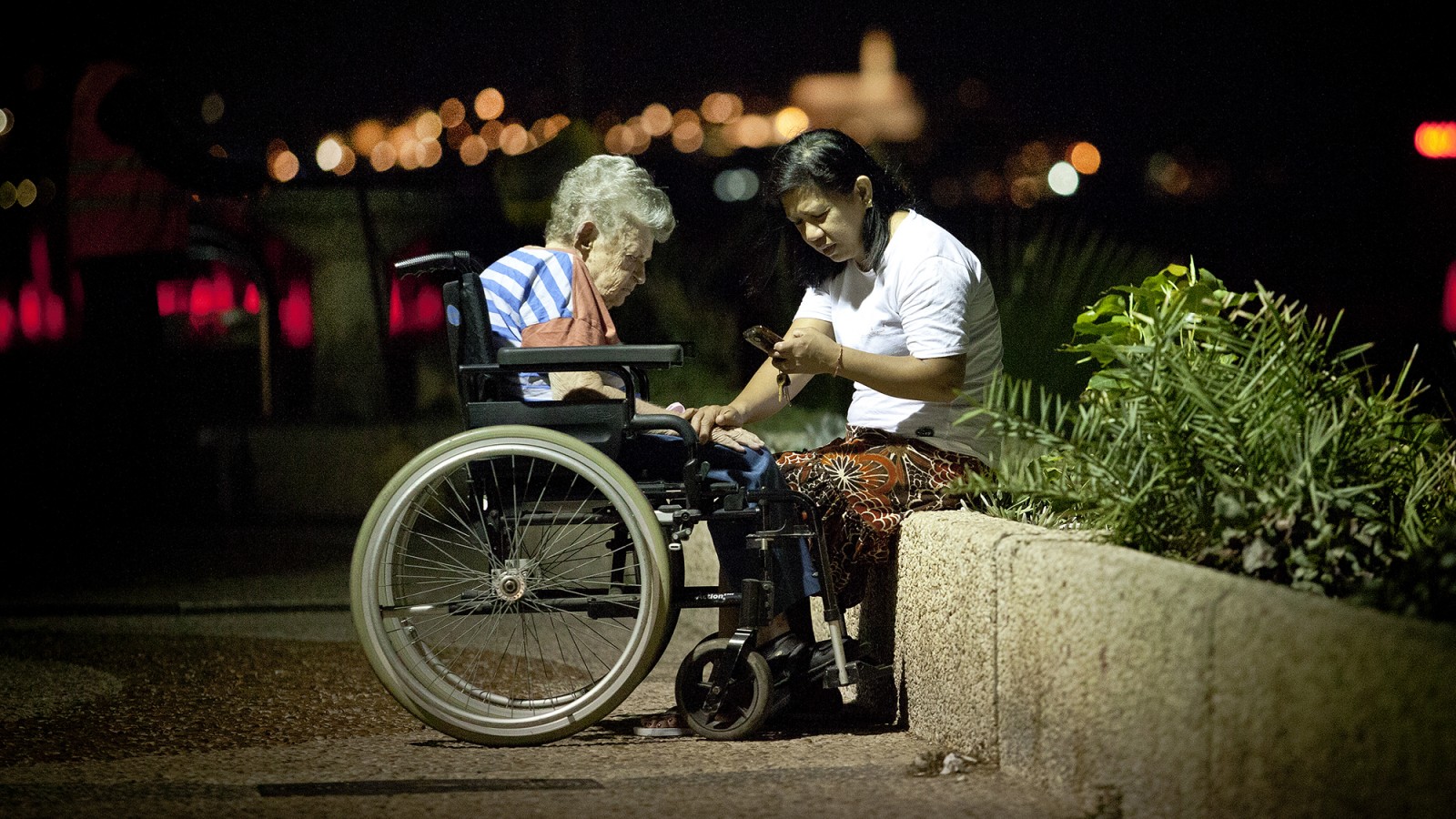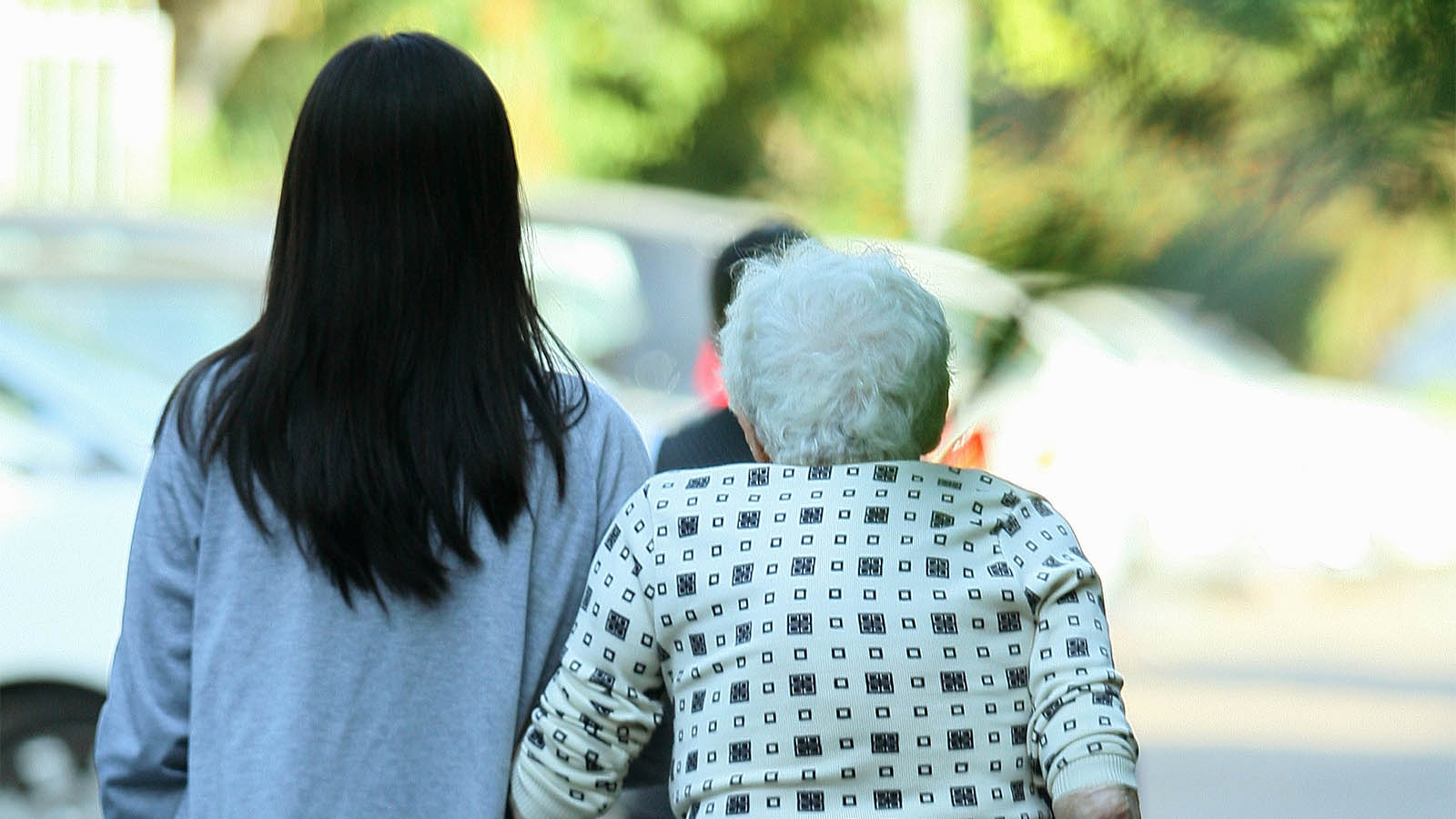
Like in many countries, the coronavirus outbreak in Israel disproportionately affected nursing homes and assisted living facilities. Among the steps that many facilities took to mitigate the chance of spread of the virus were prohibition of visitors and restriction of contact between the facility and the outside world. Many institutions decided to prohibit their residents’ personal aides, migrant workers who are subject to special labor laws, from leaving the facilities – essentially negating their freedom of movement and their right to a day off each week.
During the lockdown, which started in March and ended in May, the workers, many of whom live in crowded apartments together with workers from many different assisted living facilities, were prohibited from leaving the facilities’ premises in order to prevent them from meeting their housemates and spreading the virus between institutions. While this government prohibition was lifted two weeks ago, some of the facilities continue to prohibit caregivers from leaving.

Ten weeks under complete lockdown
The prohibition on workers leaving the care facilities has led to an absence of separation between employee and employer. The aides have no privacy and no true break from work. They are also unable to take care of personal errands like trips to the bank or the post office. In some facilities, workers are permitted to leave, but they must find a replacement to care for their charges, who cannot be cared for by family due to coronavirus concerns, and must undergo a difficult-to-obtain coronavirus test before returning to work. This problematic situation also harms the residents themselves by exposing them to potential labor law infringement charges, as many aides are employed directly by their clients.
A long-term caregiver working in an assisted living facility in the Jerusalem area, who has asked that his identity not be disclosed, tells Davar that since February 29th, he has been prohibited from leaving the facility except to accompany his charges. He says that his main complaint is the loss of his day off and the fact that he is not paid overtime wages for the extra day on which he is forced to work.
A worker in the Tel Aviv area, who also asked to remain anonymous, has not left the assisted living facility where he is employed for the past ten weeks. He says that leaving will be permitted starting this week, but that he will not be allowed to stay outside of the facility overnight. "We’re suffering, but at least we know that on Thursday we'll be able to leave", he says. "It was very hard, but not because of the patient's family; because of the management and the situation".
Under the new guidelines, new caregivers are required to undergo testing for coronavirus; a requirement that makes it difficult for the workers to find a substitute in order to be able to take a day off. The management of retirement home network Mishan has announced that it will apply to the Ministry of Social Affairs and the Ministry of Health to ask them to enact regulations that ease the substitution process for aides.

Kav La'Oved organization, which protects the rights of foreign and migrant workers, says that the prohibitions and restrictions imposed on foreign caregivers are different from those imposed on Israeli caregivers and violate the guidelines of the Ministry of Health and the Commissioner of Foreign Workers' Rights at the Ministry of Labor. "Kav La'Oved has appealed to the Ministry of Health, warning that the assisted living facilities’ policies 'are effectively imprisoning the workers, in a manner harmful to them and hazardous to their employers'".
"Specific cases must be reported"
Responsibility for migrant workers in Israel is divided between several government ministries: The Population Authority at the Ministry of the Interior, the Supervision of Assisted Living Facilities at the Ministry of Social Affairs, and the Commissioner of Foreign Workers' Rights at the Ministry of Labor, who is charged with enforcing the terms of employment. An inquiry by Davar reveals that none of these entities has checked, at its own initiative, that the rights of foreign workers were being protected at the various facilities.
Professor Nimrod Maimon, head of the Ministry of Health’s program for preventing COVID-19 at assisted living facilities, told Davar that "We are a advisory, not a regulatory body, and have no jurisdiction to enforce the law. Therefore, such cases should be reported. Foreign workers have rights; this is imprisonment and a complaint should be made. The situation violates our guidelines, so if there's a place that doesn't let people leave, it should be reported".
The Ministry of Social Affairs said that "This conduct is not in keeping with the Ministry's procedures; specific cases must be reported". The Commissioner of Foreign Workers' Rights at the Ministry of Labor, Adv. Shiri Lev-Ran Lavi, said that no applications have been received, and that she was unaware of the claims described. They later added that the matter will be checked.
"It is time for a profound reckoning"
Adv. Hani Ben Israel, an expert on foreign workers' rights, says that the treatment of migrant workers in long-term care during the coronavirus pandemic demonstrates the inherently problematic nature of their employment framework.
"It's a type of employment which even in normal times is based on a pervasive denial of leisure and rest, and since the government relates to them in a highly instrumental fashion, the road to complete elimination of their leisure, basic freedoms and freedom of movement is shorter".
"Paradoxically, the vital and critical nature of the work done by long-term care workers – which the coronavirus crisis made evident – did not lead us to rethink their meager compensation or their impossible labor terms; instead, it led to further deterioration of their already harsh labor conditions", adds Ben Israel, who leads the Clinic for Refugee and Immigrant Rights at the Herzliya Interdisciplinary Center and is a member of the research group TraffLab – A Working Approach to Human Trafficking at the Tel Aviv University School of Law.
"As we emerge from this crisis, it is also time for a profound reckoning of the employment framework we have crafted for these workers, and the ease with which that framework has deteriorated to become a sweeping and extreme denial of rights during the coronavirus pandemic", says Ben Israel. "It's hard to imagine us finding such an extreme denial of rights acceptable for Israeli workers."






